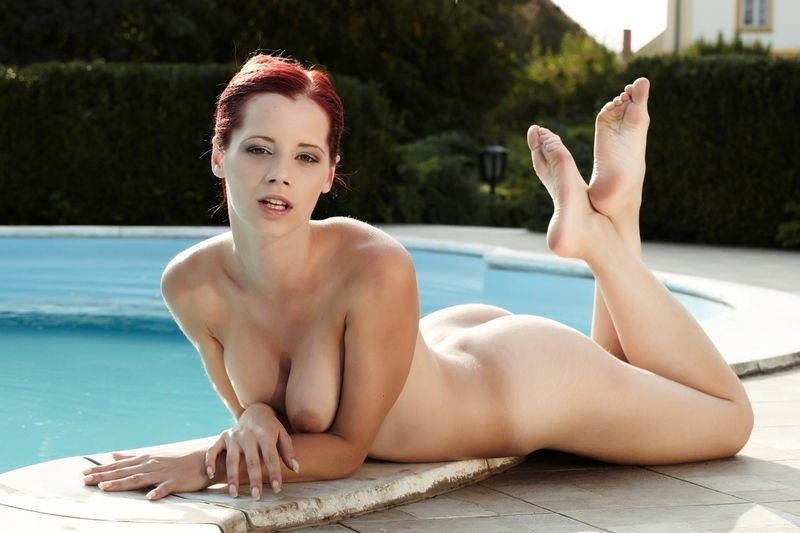|
|
Young Red Haired Girl Outside By The Swimming Pool
|
Whirlpool tubs first became popular in America during the 1960s and 70's. A spa is also called a "jacuzzi" in USA since the word became a generic after plumbing component manufacturer Jacuzzi introduced the "Spa Whirlpool" in 1968. Air bubbles may be introduced into the nozzles via an air-bleed venturi pump that combines cooler air with the incoming heated water to cool the pool if the temperature rises uncomfortably high. Some spas have a constant stream of bubbles fed via the seating area of the pool, or a footwell area. This is more common as a temperature control device where the heated water comes from a natural (uncontrolled heat) geothermal source, rather than artificially heated. Water temperature is usually very warm to hot — 38 to 42 °C (100 to 108 °F), so bathers usually stay in for only 20 to 30 minutes. Bromine or mineral sanitizers are often recommended as sanitizers for spas because chlorine dissipates at a high temperature thereby heightening its strong chemical smell. Ozone is an effective bactericide and is commonly included in the circulation system with cartridge filtration, but not with sand media filtration due to clogging problems with turbid body fats.
Ocean pools
In the early 20th century, especially in Australia, ocean pools, were built typically on headlands by enclosing part of the rock shelf, with water circulated through the pools by flooding from tidal tanks or by regular flooding over the side of the pools at high tide. This continued a pre-European tradition of bathing in rockpools, or bogey holes with many of the current sites being expanded from sites used by Australian Aboriginies. Bathing in these pools provided security against both rough surf and against sharks. There were often separate pools for women and men, or the pool was open to the sexes at different times with a break for bathers to come without fear of observation by the other sex. Segregated changing sheds and showers are provided. These were the fore-runners of modern 'Olympic' pools. A variation was the later development of sea- or harbour-side pools that circulated sea water using pumps. A pool of this type was the training ground for Australian Olympian Dawn Fraser.
|
|









